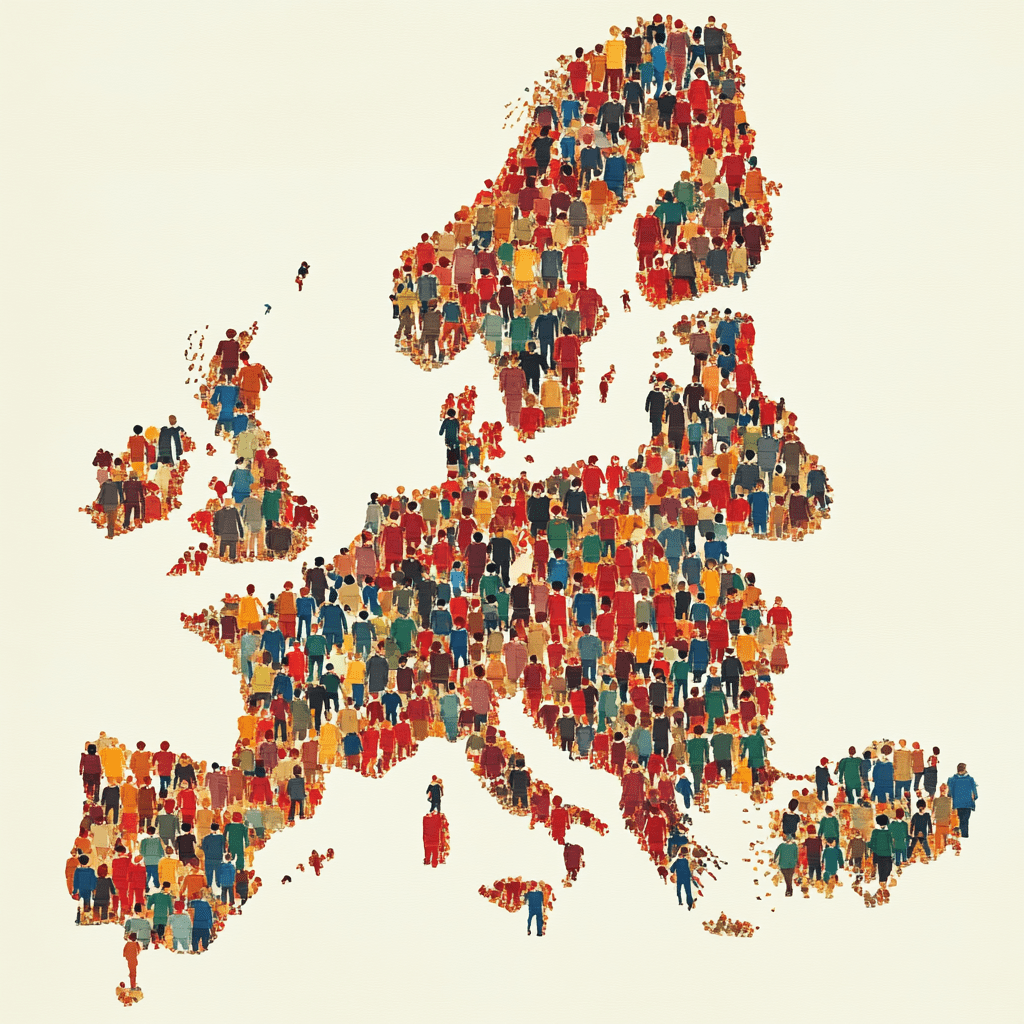IEP@BU Policy Briefs Series

If Europe embraces the opportunity to invest in defence and innovation, it can strengthen its position within the global order. A Policy Brief by Carlo Altomonte and Walter Rauti

On 20 October 2025, Bocconi University hosted the event “The EU’s Anti-Poverty Strategy: Evaluation and Next Steps”, jointly organized with European Commission’s Directorate-General for Employment, Social Affairs and Inclusion (DG EMPL). This policy brief collects and synthesizes the main materials from the event. Prepared by Pietro Galeone and Federica Maria Raiti.

Our own simulations indicate that global solidarity levies implemented worldwide on maritime shipping and aviation could raise significant revenues. A Policy Brief by Luiz Awazu Pereira da Silva, J. Christopher Proctor, Mathilde Salin, Romain Svartzman, Morgan Després, Pascal Saint-Amans

At the European Commission level, the diffusion of responsibility in matters of demography creates both challenges and opportunities for policymaking: while it risks fragmentation, it also opens the door to a more integrated and coordinated approach. A Policy Brief by Arnstein Assve, and Elisa Latora.

Diluting reporting obligations risks creating uncertainty, weakening Europe’s competitive edge in green innovation, and sending conflicting signals to companies and financial institutions that have already invested heavily in compliance. A Policy Brief by Sylvie Goulard, and Keraron Aure

To restart growth, the EU needs to focus on productivity and innovation. This does not require hundreds of billions of euros in new expenditure, but rather a sharp focus on the efficiency of existing budgets coupled with innovation-friendly rulemaking. A Policy Brief by Daniel Gros, and Jacob Funk Kirkegaard

Direct public subsidies to Chinese BEV producers in the forms of grants and tax breaks are relatively small. The Commission motivates a large part of the countervailing duties (CVD) with the argument that entire markets in China are so distorted by industrial policies that the Chinese BEV producers do not face market prices for credit and batteries. A Policy Brief by Daniel Gros, and Weinian Hu

While economic theory and empirical evidence on human capital affirm the positive effects of education and training on productivity and economic growth, there is a tendency to treat skills enhancement as a universal remedy for labor market inefficiencies. A Policy Brief by Pietro Galeone

European countries should plan for a Peace Enforcement mission and prepare for either Non-Combat Security Assistance and Support or for Mobile Rapid Reaction Force in order to be prepared for a “what if conflict resumes”. A Policy Brief by Andrea Gilli, Mauro Gilli, and Niccolò Petrelli

Voluntary certification is a novel approach that can restrict the harmful practices of some dominant platforms and motivate and reward emerging platforms that align their practices with the public interest. A Policy Brief by Dovev Lavie, Oreste Pollicino, and Tommaso Valletti

Lack of integration of capital markets is a major source of weakness and declining competitiveness of the European economy. While efforts to complete harmonization of capital market legislation in this domain should retain highest priority in the new Commission’s work programme, there is room to advance integration by exploiting the STS regulation introduced by the EU in 2017 as part of its broader efforts to implement the CMU.

Building on a previous analysis of the trends of convergence and divergence between peripheral and core EA-12 countries after the euro area sovereign debt crisis (Bordignon et al., 2023), this work investigates the long-term evolution of such differences in economic, institutional, and political outcomes, testing whether a pattern of convergence was finally resumed and comparing the effects of this crisis with those induced by the Covid-19 pandemic.

As Europe begins to face the start of its own relationship with fentanyl, it is paramount that policymakers learn from the lessons of American and Australia in crafting their response. Policymakers need to bear in mind that drug users are consumers who will respond to the changing economic environment wrought by their efforts.

The mobile telecom sector is often taken as a case study of fragmentation of the single market leading to less investment and a loss of technological leadership. However, a closer examination of the data suggests that the fragmentation also implies more competition leading to lower prices for consumers in Europe.

A popular thesis in policy circles is that there is an “investment gap” that Europe needs to fill to face the great challenges of our times, such as the digital and green transitions. However, the notion of the “investment gap” used by policymakers is often vague and therefore it risks legitimate a wasteful allocation of public resources.

After revisiting the pros and cons, this paper concludes that, all in all, the rationale for introducing an ECB-sponsored digital euro for citizens, retailers, and producers, is not solidly established. Today’s highly dynamic, innovative, and efficient digital payment ecosystem does not require such an instrument, which would unavoidably duplicate existing applications and probably struggle to match private innovation.

Defense expenditure in EU members rose by 50% (net of inflation) between 2015 and 2023, with an increase in the expenditure-to-GDP ratio (Figure 2, referring to the current EU members). The increase involved all EU members, including not NATO members during the period under consideration.

The EU is encouraging other countries to follow its lead and support the green transition. This requires massive subsidies in many different sectors. Why should the EU then complain if other countries outcompete it in terms of subsidizing the production of green goods?

It is often assumed that Germany’s economic relations with China are so important that Berlin tends to take a softer stance on China-EU relations than its EU partners – or at least that this used to be the case until most recently. In particular, it is feared that German industry might be more vulnerable to disruptions of the supply of Chinese inputs than other European countries. However, this impression of a greater dependency of German industry and its supply chains from China is not borne out by the data.

This paper shows that the current operational framework of monetary policy relying on excess liquidity, together with a high level of interest rates, produces a remarkable redistribution of interest payments across the national central banks of the Eurosystem, due to the rules governing the pooling of monetary income among them. This mechanism implies significant fiscal transfers across the member countries of the euro area. Our estimates for 2023 show that their size can be in the order of several billion euro.

The polls for the forthcoming European Parliament elections indicate a further surge of the radical and/or sovereigntist right. This result might destabilize again traditional partisan and inter-institutional equilibria and weaken the support to EU authority at a time when serious challenges and difficult choices loom large. Does the EU risk plunging back into an “existential crisis”, as it happened a decade ago in the aftermath of the 2014 elections?

This policy brief highlights that while the green subsidies provided by the Inflation Reduction Act of the United States are homogeneous across beneficiaries, the subsidies associated with the Green Deal industrial plan are highly fragmented across European member States. We quantify the extent of resource misallocation due to this subsidy dispersion by using the model of Hsieh and Klenow (2009), calibrated on the EU electricity-producing industry. We compare both the actual allocation of subsidies, and a policy of subsidies coordinated at the EU level, to a hypothetical frictionless benchmark with no subsidies. We find that moving to coordinated subsidies can increase productivity by more than 30% with respect to the uncoordinated scenario, substantially reduce the productivity gap with the United States, and generate gains worth up to 6% of the EU value-added in the industries considered. Policy recommendations include greater EU-level coordination to minimize misallocation and enhance productivity.

This paper, prepared on a request by the European Parliament, contributes to a reflection aimed at identifying ways to revive and upgrade the banking union, so as to enable it to cope with the major transformational challenges facing Europe as we move forward in the 21st century: Green, Digital, Geo-Strategic and Structural.

The Council of the European Union (EU Council) agreed on a provisional set of new fiscal rules in its meeting on December 20, 2023, that introduces significant changes to the Commission’s proposals. The fiscal reform marks progress but is, at the same time, a lost opportunity.

There is no doubt that monetary policy reacted late to the rising inflationary pressures experienced in 2021-22. The major central banks subsequently caught up rapidly and hiked interest rates at an unprecedented pace. However, as inflation reached its peak at the end of 2022 and has been falling since then, central banks may once again be late in adjusting their policies.

Our starting point was the stark increase in non-energy price inflation, which is the key element for the ECB since monetary policy cannot do anything about energy prices. Could the ECB have foreseen this development? Our analysis suggests that this would have been difficult based on past experience.

La Nota di Aggiornamento del DEF (Nadef) e la bozza della Legge di Bilancio del Governo Meloni indicano obiettivi e programmi di politica economica sulla cui credibilità gravano varie ipoteche. Le difficili condizioni dell’economia internazionale e l’intrinseca debolezza della finanza pubblica italiana possono mettere in questione gli impegni dichiarati dal governo, con implicazioni per la stabilità finanziaria del paese.

To understand the feasibility of further integration, we study the extent and evolution of cultural and policy views heterogeneity in Europe leveraging international survey data. We calculate the distribution of cultural and policy views distance both across and within countries. We find that cultural heterogeneity has increased along both dimensions in the past but has decreased in the most recent wave.







































